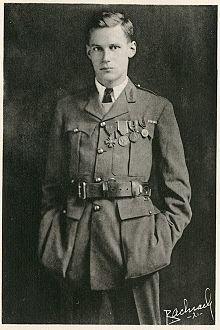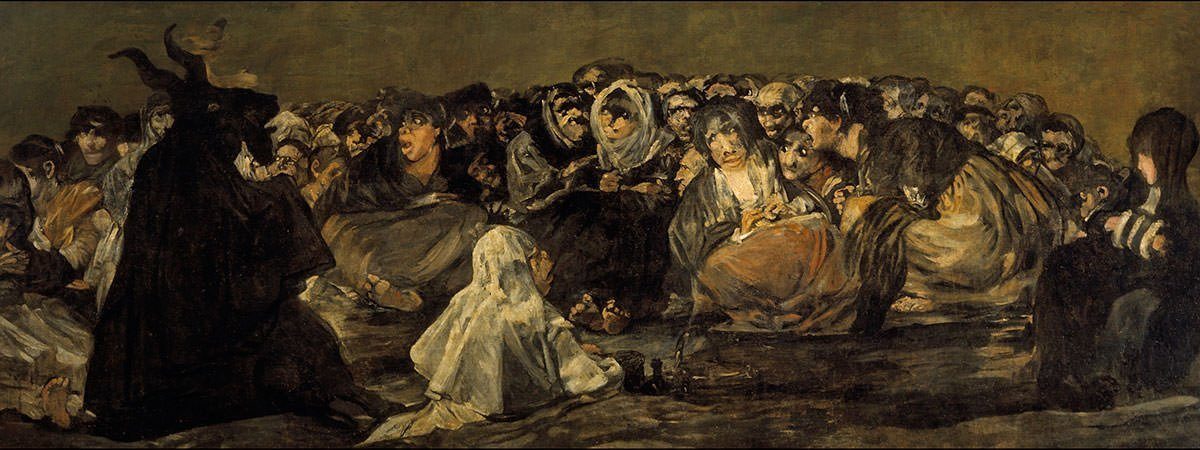
Bram Stoker, manager of the Strangers. “We’ve got to do something.”
~~~
Ben Franklin’s Boston Secrets 41 23 —
Harvey Weinstein’s Westport Actors 33 31 (8)
P.T. Barnum’s Fairfield Animals 31 33 (10)
J.P. Morgan’s New York War 31 33 (10)
David Lynch’s Virginia Strangers 26 38 (15)
~~~
Ben Franklin’s Boston Secrets are pulling away from the pack in the Society Division.
Emily Dickinson is hitting with power, and also hitting close to .400. Dickinson, Robert Frost, and Woody Guthrie in the middle of the Secrets lineup have been relentless. Especially in the clutch. They are confident and clear-eyed, seeing right through any philosophical obscurities the opposing pitchers might bring. And every time one looks up, Nathaniel Hawthorne, the lead-off hitter, is on base, a statue in a dream.
The rest of the lineup: Cole Porter batting second, moves runners over, always making contact; Carl Sandburg handles everything hit his way at third; Paul Simon and Kanye West draw walks, and patrol their outfield positions with risk, recklessness, and brilliance.
George Washington, stolid in the dugout, sees everything, calmly watching, inspiring his players in an almost preternatural manner.
Washington is ably assisted by his coaching staff: Winfield Scott, JFK, Clarence Thomas.
The Secrets bench is deep: Washington Irving, James Fenimore Cooper, William Cullen Bryant, John Prine, Paul Laurence Dunbar, Bob Tonucci, Stephen Cole, Dolly Parton, Willie Nelson.
The pitching staff is doing its job. Poe, Plato, Pushkin, and Moliere represent the scientific ingenuity, passion, and virtue of the artificial republic which Ben Franklin, owner of the Secrets, helped create, a method of society delicately balanced between loyalty and deal-making, a reality which not does not merely think—but out-thinks the enemies amassed around it.
Edgar Poe is 5-2 in his last 9 starts. He didn’t win his first game until the middle of May. Plato has been good from the start, with 4 shutouts and a record of 11-4. Pushkin is 8-1 and has only walked 10 batters in 121 innings. Moliere had a rough start to the season, but is 3-1 in his last 6 outings. The bullpen by committee is getting the job done: Francis Scott Key, Thomas Jefferson, James Madison, James Monroe, and F. Scott Fitzgerald.
David Lynch’s Strangers are now fifteen games out of first.
Replacing Samuel Beckett (3-8) in the starting rotation will be Salvador Dali.
One can see why Camus might pitch for a team called the Strangers. But Camus is 2-11.
Camus will be dropped from the rotation in favor of Franz Kafka.
“Sometimes minimalism and existentialism work in sports competition, and sometimes they don’t.”
So David Lynch began his remarks announcing the changes—team moves Strangers fans are divided on. Many love Camus and Beckett. But the Strangers are in last place in the Society Division, and falling fast.
Bram Stoker, the Strangers manager, agreed it was time for a change.
“How restless I’ve felt, these last few weeks,” Stoker said. “I’ve struggled with these changes! How fast the summer is moving, a summer of poetry and philosophy in the misty shadows of the plunging blood red sun! How much longer can we stand this torture! Something must be done!”
Franz Kafka was brought on board a week ago, where he is 0-2 in relief for the Strangers, losing one run games to new bullpen aces for the Animals (A.E. Milne) and the War (Jack London). But Kafka showed he has the stuff, fanning 12 in the 7 innings he worked. Let’s see how he does as a starter. This will leave a hole in relief, and the Strangers have had a shaky bullpen: H.P Lovecraft, Antonin Artaud, Robert Bloch, Philip K. Dick, Shirley Jackson.
The Strangers can hit. Power comes from the “PoweR BRotheRs”—Rimbaud, Rabelais, and Roethke. Theodore “Ted” Roethke just went on a tear, hitting 7 homers in 15 games—he now has 14, putting him among the Poetry League leaders. The lineup is good from top to bottom: Mary Shelley leading off, Fernando Pessoa batting second, then the 3 Rs, Paul Verlaine Weldon Kees, and Laura Riding, one of the best fielding shortstops in the league.
You can have a great lineup, but if your pitchers aren’t throwing strikes, no team can win.
Alexander Pope has won 7, and Nietzsche, 6—the no. 1 and 2 starter for the Strangers. They will have to turn things up a notch if they’re going to catch the Secrets.
J.P. Morgan, who owns the War, was not expecting his nephew, the poet Harry Crosby, to hit home runs. He was just hoping he would hold down left field and get on base, occasionally. But he’s belted 10 home runs, and may be moved up in the order—he currently bats seventh. The War trails the Secrets in the Society Division by 10 games. Stephen Crane, 359. 16 homers, is producing from the cleanup spot, but much more was expected from Philip Sidney (.224 4 homers) batting third. Apollinaire only has 5 homers and a .220 batting average batting fifth, and Rupert Brooke is striking out way too much in the lead-off spot.
Shakespeare, the War’s ace, has hit 4 homers, but in a terrible blow to the War’s fortunes, he will be out for 3 weeks, and up until now he only owns a 7-6 record with a 4.11 ERA. The expectations were so high, and out there on the mound he sometimes uses comedy when he should use tragedy, a speech when he should use a song, a stage direction when he should use a dance. Walter Scott, as the War’s no. 2 starter is among the league’s leaders in wins (8), Erich Remarque, the no. 3 starter has won 7, but David Hume is 5-8.
Jack London (2-0 0.00 ERA) has just been signed to anchor the bullpen and may be what the War needs. He joins RIchard Aldington, Edward Gibbon, and Giordano Bruno in the relief corps. Edward Gibbon will start a few games for the injured Shakespeare.
P.T. Barnum’s Animals are tied with the War for third. Wallace Stevens is finally starting to hit from the cleanup spot and Amy Lowell continues her amazing run; she lost her first game of the season just this week, when Moliere of the Secrets matched her pitch for pitch, strikeout for strikeout, until the bottom of the ninth when Paul Dunbar homered to win it for the Secrets, 1-0. Amy gave Animals fans a scare when she winced in pain surrendering that home run—she will have to miss a start, but the doctors say it’s not serious. A.A. Milne has been added to the Animals bullpen, and he’ll pitch in Amy’s spot next week. Verne has won 8 games for the Animals, but Ovid and Melville have been struggling—much of it due to lack of run support; this lineup needs to do more, offensively—Jack Spicer, Edward Lear, Seamus Heaney, Stevens, Marianne Moore, Robinson Jeffers, Mary Oliver, and Larry Ferlinghetti.
That leaves Harvey Weinstein’s Actors, in second place, the closest team in the Society Division to the Secrets, at 8 games back. “They’re (the Secrets) too comfortable,” Actor manager Johnny Depp said; “we’ve got to put some pressure on them, let them know we’re here, make them look back.”
Norman Mailer replaced Henry Beecher in the starting rotation for the Actors, and dazzled in his first three starts (2-1 0.40 ERA). Petronius is starting to win (5-2 in his last 7 starts, including a 3-2 loss to Amy Lowell) and if streaky Byron and Chaucer can be more consistent (both have 3 shutouts), the Secrets can certainly be caught. Sade, Flaubert, Gide, and Richard Rorty have been good but not great in relief.
Thomas Nashe has 16 home runs for the Actors and Hafiz and Amiri Baraka have both hit 10. At the top of the Actors order, John Skelton and Langston Hughes will have to get on base more, if Westport is to really turn into an offensive machine.
Scarriet caught up to Lord Byron, pitching ace for Weinstein’s Actors, for a few words.
Scarriet: Hey, George, how’s it going?
Byron: Pardon?
Scarriet: Scarriet. May we get a quick interview?
Byron: Pardon? Oh (looking closer) Scarriet. Yes. Sorry. How are you?
Scarriet: What’s it been like to be in this league?
Byron: Like? Why does everyone use that word? It’s been wonderful. Yes, I enjoy it.
Scarriet: Do you like the States? The world, now?
Byron: No, yes. No. It’s vulgar. It’s too vulgar for me. Americans are intelligent, but they use their intelligence for all the wrong things. (Pause) They have no sense of—it’s hard to describe. Well, they’re all pigs, actually. There. I’ve said it. Is that alright?
Scarriet: Sure.
Byron: But I love this league. The game is great.
Scarriet: Your team isn’t exactly scoring a lot of runs when you pitch. And you pitch against the best. Plato.
Byron: Oh God. He shut me out.
Scarriet: Pope.
Byron: He shut me out. But then I got under his skin. I teased him. He loses to me now. Three in a row. The Strangers. We always beat them. We’re stranger than they are.
Scarriet: Shakespeare.
Byron: He’s on a lousy team. The War. The first time I faced him, I was nervous, and pitched badly, and he won. But now it’s alright. It was great. My best game when I beat him.
Scarriet: I remember. You struck out—
Byron: 13! 11?
Scarriet: You struck out 13 and—
Byron: I didn’t walk anybody. I was a beast.
Scarriet: You beat Shakespeare 1-0, and allowed 2 hits.
Byron: Two hits from a perfect game. Crosby, that snotty brat, got a hit. And Philip. The great one. Sidney. A ground ball up the middle.
Scarriet: Ovid.
Byron: I shut him out twice! But then he beat me, 3-2. Just this week. I don’t like him. He’s vulgar. Poetry as sex advice! Really?
Scarriet: Will the Actors catch the Secrets?
Byron: I don’t care. Maybe, yes… I wish I played for the Secrets. Plato, Pushkin, Poe. Have you read Poe? A master. How is it that Poe’s an American? What happened to America? You guys are disgusting now. I guess it’s bound to happen. Successful country. Too much leisure. The sellers crowding in. The modern world. Who could have imagined. Frightfully pleasurable. I must say. But the individual is what matters. I suppose. (pause) Good music. Fresh air. I’ve got to go now. Bye.




























